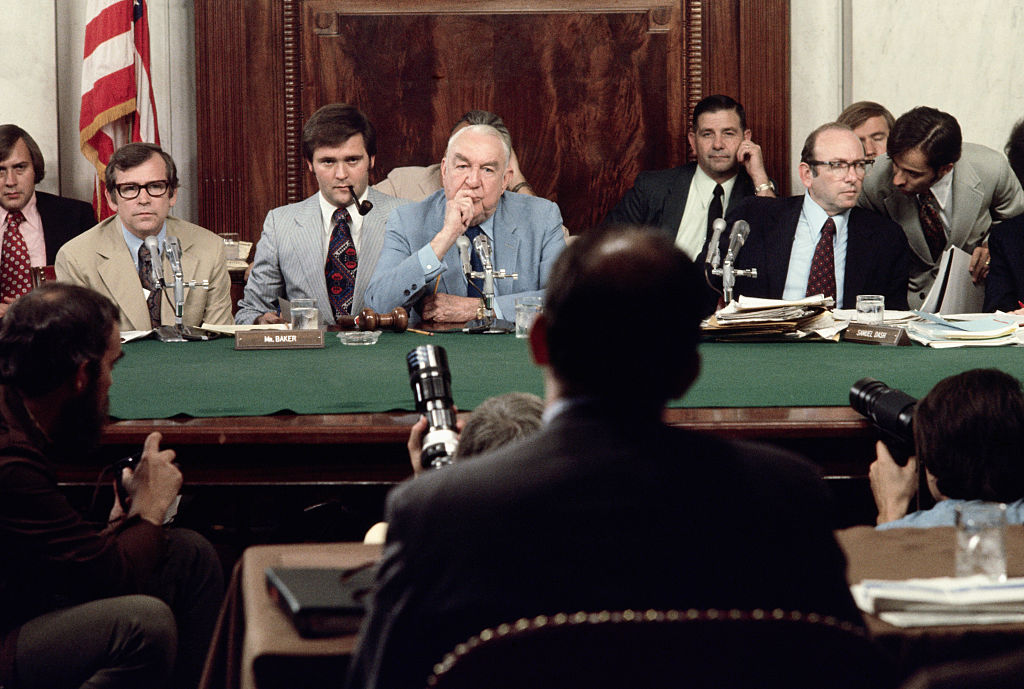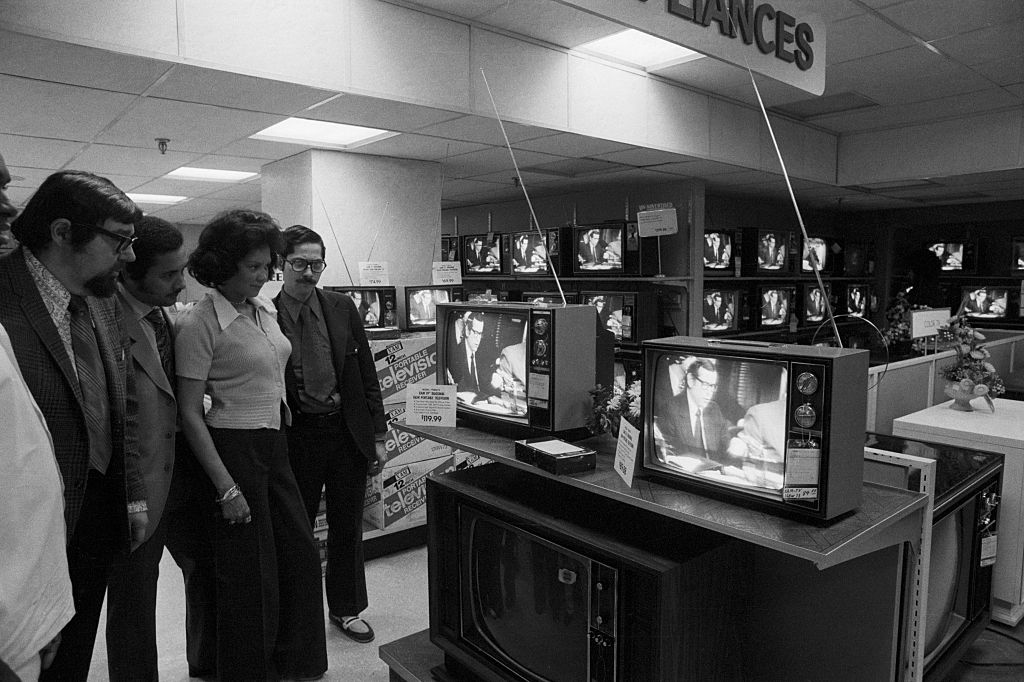
The public hearings of the Select Committee to Investigate the January 6th Attack on the U.S. Capitol—the eighth and last of which is set for prime-time broadcast on Thursday—were always going to be a unique moment in American history, given the unprecedented events they were meant to investigate. But, as far back as the planning stages, Select Committee members indicated that they did have one historical analogy in mind: the 1973 Watergate hearings, which investigated President Richard Nixon’s role in the attempt to cover up a break-in at the office of the Democratic National Committee—and which led up to Nixon’s Aug. 8, 1974, resignation.
“We’re going to have hearings for the American people which I hope will seem somewhat like the Watergate hearings did,” Rep. Jamie Raskin said on MSNBC on January 17, “in that they will be a daily occurrence so people can follow the unfolding narrative.”
With the Jan. 6 hearings winding down, TIME asked a few experts on the Watergate era about how that analogy has held up.
While the history of the Select Committee is still being written, one similarity is already clear. These rare bipartisan hearings into abuses of presidential power do have the power to shift public opinion—for some people.
“The Jan. 6 Committee hearings have already accomplished what the Watergate hearings did. A majority of Americans—the middle and the left—have concluded that the President under investigation did wrong. Neither set of hearings, however, convinced the Republican base,” says Ken Hughes, a Watergate expert at the University of Virginia’s Miller Center of Public Affairs, who spoke to TIME as part of a presidential-history partnership between TIME History and the Miller Center. ”A majority of the Republican base supported Nixon during Watergate, buying into Nixon’s narrative that he was the victim of liberal Democrats in Congress and liberal bias in the news media. That’s why congressional Republicans stuck with Nixon until after their 1974 [midterm] primaries were over. They knew if they withdrew support from the Republican president, the base would withdraw support from them, and they would lose their jobs.”
More from TIME
Nixon’s approval among the general public, however, dropped during the Watergate hearings. He went from winning a landslide victory in 1972 and boasting a 68% approval rating, to plummeting in those polls to a low of 31% by early August 1973, a few months after the televised hearings started. With Trump, who in one crucial difference is no longer in office, it remains to be seen whether the hearings will deter him from his much-discussed potential run to retake the White House.
“The Watergate hearings were compelling to so many Americans because Nixon was the sitting President, and there were these growing revelations about the guy in office having committed and overseen this criminal conspiracy,” explains David Greenberg, author of Nixon’s Shadow: The History of an Image. “We learned about enemies lists, and we learned about secret White House tapes, and we learned about the abuse of the FBI and other federal agencies. It’s different with Trump out of office. Obviously, it could affect whether people want him to run again, whether they vote for him if he does run again, but it’s very different from having people turn on and become disillusioned with the sitting president.”
Greenberg also adds that the impact of the Jan. 6 hearings is difficult to gauge in the streaming era, with thousands more TV channels diverting people’s attention than there were in 1973, and people catching just snippets of the hearings on social media. “The Watergate hearings, which were like man landing on the moon, just had this momentousness to it that I don’t think is at work today,” he says. “I think for a lot of people right now, [the Jan. 6 hearings are] not top of mind.”

To Tim Naftali, the first director of the Richard Nixon Presidential Library and Museum, what stands out is the immense popular support for Trump compared to Nixon.
“One of the things that emerged from Watergate that we’re not seeing yet is a consensus that the President had hurt the country…a bipartisan nonpartisan view that the President had done wrong and had to leave the White House and that we didn’t need another Nixon,” says Naftali. “We don’t have as bipartisan and nonpartisan and pervasive [a] view today that this country doesn’t need another Trump. That would be helpful for our society. It would help us heal, and the January 6 committee could contribute to that, but that’s one big difference from Watergate. President Trump left office with much more support than Richard Nixon left office despite the fact that we experienced a violent insurrection in Trump’s presidency and not in Nixon’s.”
But, Naftali adds, this is not the only moment in which the hearings could affect Americans’ thinking about Trump. Just because the hearings can’t produce a resignation the way Watergate did, that doesn’t mean they won’t have a lasting and significant impact.
A key legacy of the Select Committee, he says, will be the way it “deepened and broadened our understanding of the President’s responsibility for the insurrection,” laying the groundwork for how future generations will talk about the events of that fateful day.
The Select Committee’s final scheduled hearing begins on July 21 at 8:00 p.m. E.T.
More Must-Reads from TIME
- Cybersecurity Experts Are Sounding the Alarm on DOGE
- Meet the 2025 Women of the Year
- The Harsh Truth About Disability Inclusion
- Why Do More Young Adults Have Cancer?
- Colman Domingo Leads With Radical Love
- How to Get Better at Doing Things Alone
- Michelle Zauner Stares Down the Darkness
Write to Olivia B. Waxman at olivia.waxman@time.com